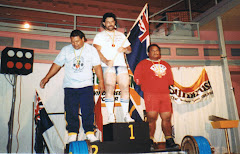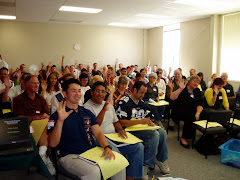So... read each of them and take from them what works for you in the coaching situation you find yourself.
Trainers: This is an often needed training program so I'm confident there's info here that will add to what you currently do in delivering goal setting & goal getting for your clients.
I'm not convinced that any one of the models I've presented are complete in themselves, yet combined they are exceptional.

This is my version of the SCORE model popularly found in NLP and orginated from Robert Dilts of the USA. It's a simple model (always my preference), yet very effective (a great combination).
The S.C.O.R.E Model:
SITUATION:
- What caused this?
- How long has this been happening?
- What decisions have lead to the situation?
- What are the circumstances that happened to create this situation?
These questions plus the one's you have asked about the current situation, gather information to assist you in finding a way forward. Not in all situations is it necessary for you to find the "cause". It most definitely is possible for us to coach a person to a solution, without knowing the cause or circumstances of "why" they have the situation.
OUTCOME:
So knowing the situation the client is in and the "circumstances" that have happened to put them in their current "situation" - what do they want?
This is the outcome question - "What do you want?" This question is future orientated and about what they want that is beyond their current situation. This requires them to be aw
 are of what they have and where they want to be (gained from situation and circumstance).
are of what they have and where they want to be (gained from situation and circumstance).Your questions will be about setting the outcome or goal they want to achieve:
- What do you want?
- What will change the curent situation?
- Knowing that you have what you have what do you want?
- How would you like things to be for you rather than what you have?
- What's the solution to your situation?
- What needs to happen so this never happens again?
Footnote: An important couple of questions to ask here are:
- How will you know you have achieved it?
- What is the evidence that will let you know that you have achieved your outcome?
RESOURCES:
- What do you need to gain the resources to achieve your outcome?
- What needs to happen to secure the resources?
- Are the resources available to you now?
- What do you need to do to gain these resources?
- When will you do this?
- Are the resources you need within your personal control - if not what needs to happen to gain their support?
EFFECT:
This is the risk management component of the goal getting acronym SCORE. Questions asked here are questions that bring awareness of the effect of achieveing their goal. It will also include questions that ask about the ecology, expense and effort (all e's) required to achieve their outcome. These questions will be similar to:
- What if it doesn't work?
- What are the risks?
- What could may hinder your progress?
- What's worse case scenario for you?
- Are you prepared to make the effort required of you?
- When things could go wrong & what will you do - what is the solution?
- Are you prepared for both the positive and negative effects of you achieving your outcome?
Closing Comments:
All right then!
There you go. That'll get you going - for now.
Remember to incorporate some or all of the other techniques I've written and I am confident you will have at your disposal an excellent goal setting model. Wishing you well...
Picture: At the top: Robert Dilts - not met him yet but thought it'd be good to picture him here as it's originator.




































































